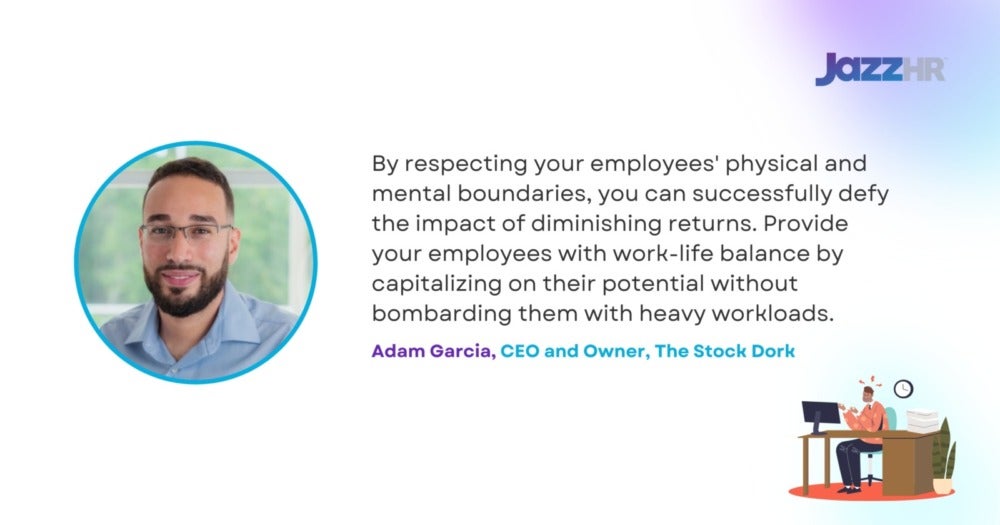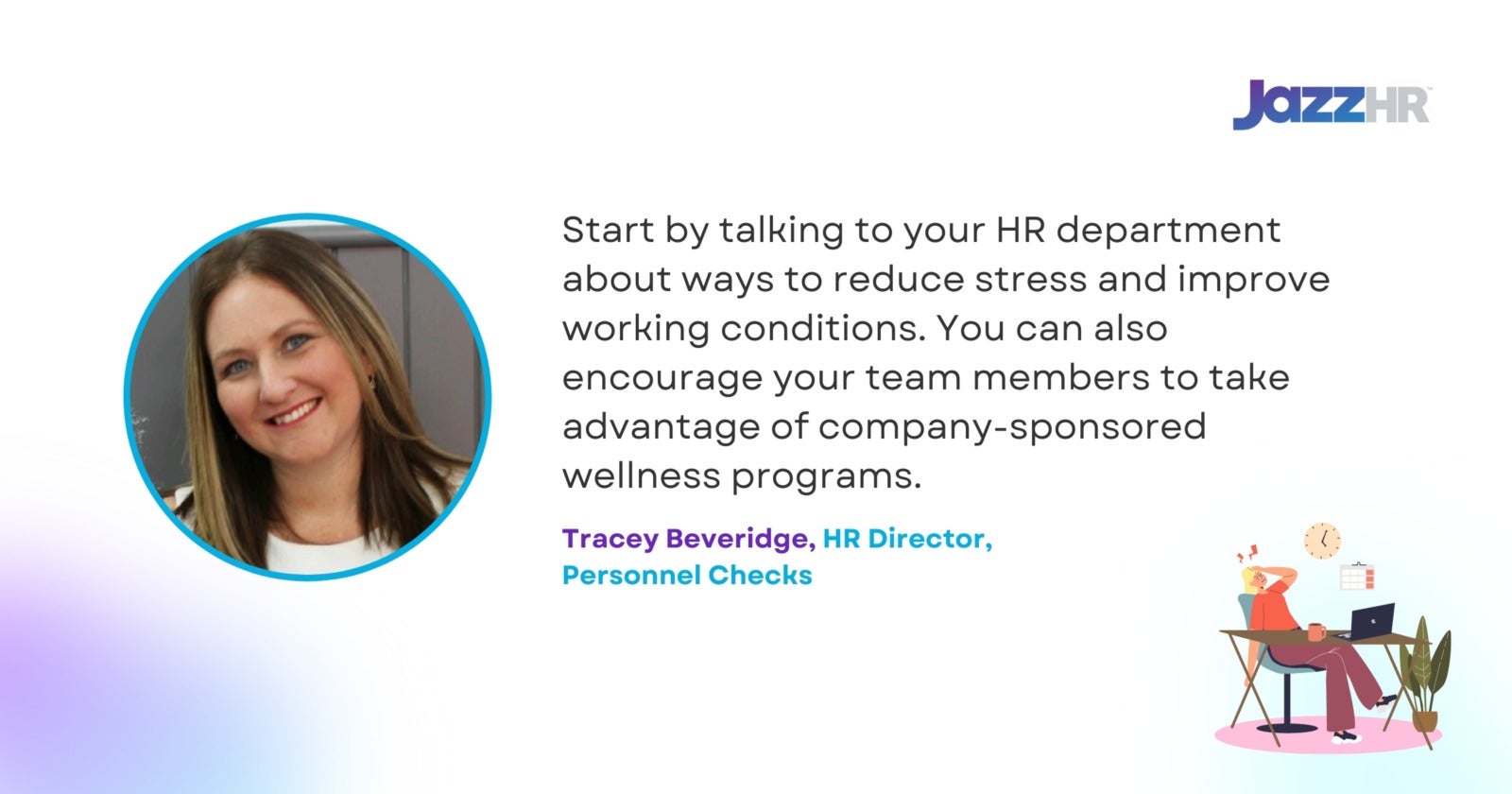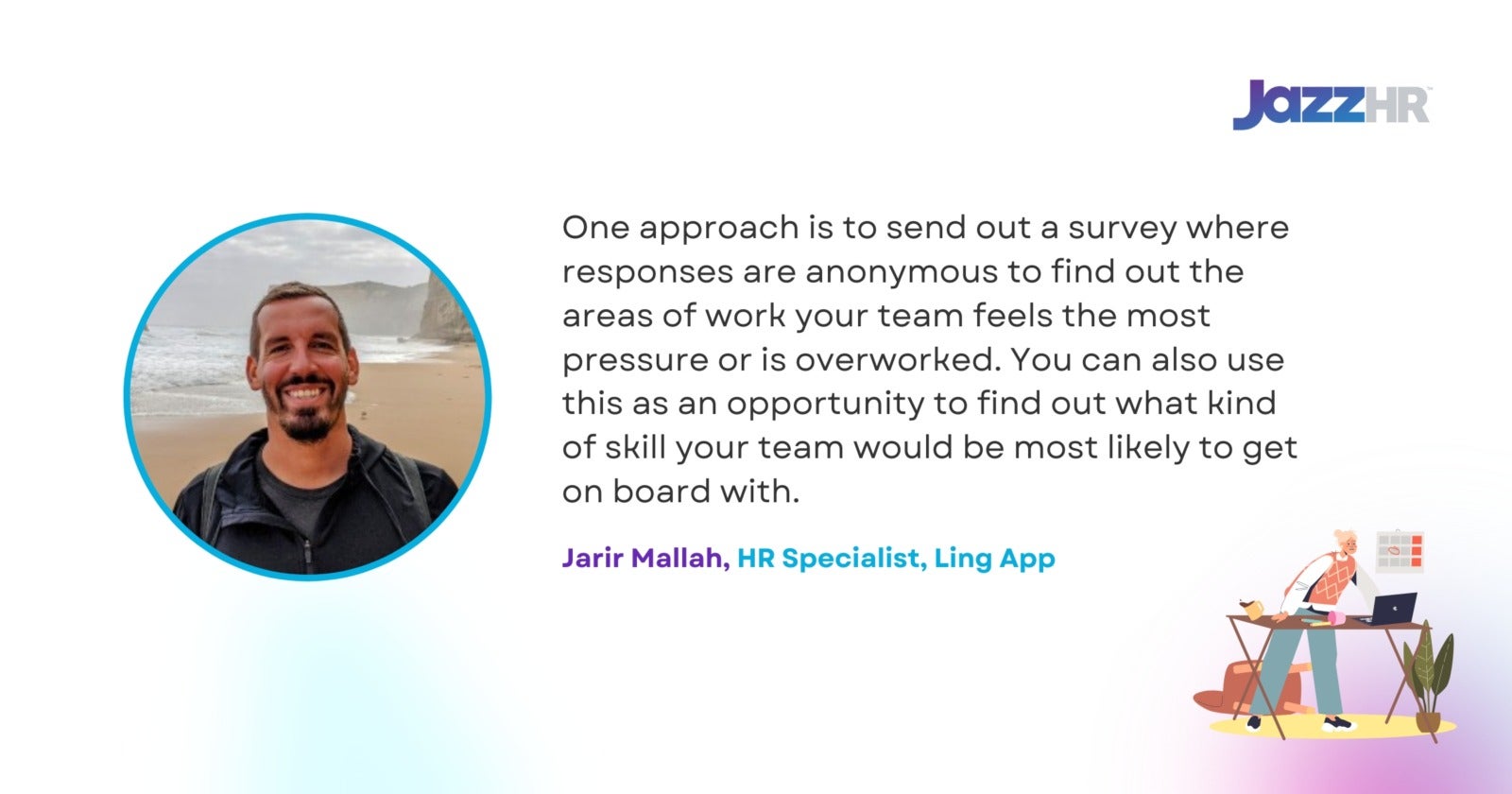
10 Ways to Know If Your Team May Be Burned Out & What To Do About It
Guest blog from Terkel.io
What is one sign that tells you your team may be burned out? And what do you do about it?
To help you save your team from complete burnout (and drops in productivity), we asked CEOs, HR leaders, and other directors familiar with employee engagement and morale this question for their best tips. From missing important deadlines to a developing disinterest in learning new things, there are several recommendations that may help you prevent burnout or solve it in the future.

Here are 10 signs that burnout is approaching and how to help:
-
Employees Missing Important Deadlines
-
Struggling to Disconnect from Work
-
Your Team Is Self-Isolating
-
Battling with Constant Distractions While Working
-
Employee Behavior Changes Drastically
-
You Feel the Impact of Diminishing Returns
-
Increase in Absenteeism
-
Employee Enthusiasm Toward Team Events Dwindle
-
Delays or Drop-offs in Communication
-
Team Members Are Not Interested in Upskilling
Employees Missing Important Deadlines
As someone who has managed teams for many years, I have seen firsthand how easily team members can become burned out. One telltale sign a team is struggling with burnout is if they regularly miss deadlines, even after being given several extensions. This can result from team members taking on too much work, or simply feeling overwhelmed by the scope of the project. In either case, it is important to take action to prevent further damage.
I typically start by talking to the team members involved to see what is causing the problem. If they are taking on too much work, I redistribute some of their tasks to other members of the team. If they are feeling overwhelmed, I provide more support and guidance. Ultimately, burnout is a serious issue that must be addressed immediately. By taking proactive steps, you can help your team avoid these pitfalls and stay on track.
Antreas Koutis, Administrative Manager, Financer
Struggling to Disconnect from Work
One indication of team burnout is if they are online almost 24/7. You can observe the green dot on your communication channels and look for team members who are always online.
It means they are struggling to disconnect from work. They would send work emails outside work hours more frequently, possibly due to their inability to do tasks and meet deadlines or an overwhelming workload.
If this is the case, always ask them about their current work conditions and collaborate on a solution. They should model their days after their leaders to discourage after-work communication and an unhealthy work-life balance altogether. As much as possible, do it privately and with a lot of empathy in mind.
Nunzio Ross, Owner and Head Director, Majesty Coffee
Your Team Is Self-Isolating
Most of us are familiar with the signs of burnout. When people are burnt out, you will probably see them walking on eggshells and avoiding communication with others. Even the slightest connection can cause pain and make them flinch. It’s difficult to reach out to people who are burnt out because they may not want to connect.
When a person is burnt out, they can feel isolated and alone. They may feel like they are the only one who is struggling, which can lead to feelings of depression and even thoughts of suicide. Therefore, it is so important to reach out to people who may be feeling burnt out and let them know they are not alone.
If you are a leader and you notice that one of your team members is becoming exhausted, take time to sit down with them and have a heart-to-heart. Let them know you are there for them and that you care about them. Even just taking a few minutes to check in can make an enormous difference.
Matthew Ramirez, CEO, Rephrasely
Battling with Constant Distractions While Working
Battling with constant distractions while working is a sign of burnout. Scientific research explains that burnout can change brain circuits, making it harder to focus. As such, it becomes tempting to engage in other pleasurable things other than work.
It could be serially watching too many shows or movies on a video streaming platform, frequently becoming unavailable during lunch breaks, or spending a lot of time on social media apps during work hours.
Leaders must monitor how much annual or holiday leave their staff members have taken. They should be concerned about individuals who don’t take them because it could eventually lead to work exhaustion and burnout. Encourage employees to take a well-earned break, if not for a vacation, at least a detox from electronic devices and work-related activities.
Abe Breuer, CEO, VIP To Go
Employee Behavior Changes Drastically
When a normally active employee does not contribute as they used to, and when you see this as a common denominator amongst the rest of your team members, your team is likely burned out.
To help counter this, and reduce the risk of further burnout, think about scheduling regularly recurring meetings with your team and let them know you want to create a safe space for them to share their concerns without judgment or consequence.
Allowing your employees to talk about their workload will take some of the burdens away from them, thinking they are alone in their feelings. It will also show leadership that they must rethink deadlines and how they assign tasks if they want to keep their team healthy and productive.
Anthony Martin, Founder and CEO, Choice Mutual
You Feel the Impact of Diminishing Returns
When your team suffers from the law of diminishing returns, there’s a high chance that your team members are burned out. This happens when there’s a dip in their productivity despite having perfect attendance in the workplace.
To prevent this, encourage your employees to avoid staying too long in the office after work hours. Give them paid flex days to take a vacation or holiday break to relieve stress.
By respecting your employees’ physical and mental boundaries, you can successfully defy the impact of diminishing returns. Provide your employees with work-life balance by capitalizing on their potential without bombarding them with heavy workloads. Doing so improves your company’s performance while ensuring your employees are happy and satisfied.
Adam Garcia, CEO and Owner, The Stock Dork

Increase in Absenteeism
One common sign is an increase in absenteeism. If your team members are suddenly taking more sick days or calling in more often, it may be a sign that they’re struggling to keep up with the demands of their job.
Start by talking to your HR department about ways to reduce stress and improve working conditions. You can also encourage your team members to take advantage of company-sponsored wellness programs. And finally, make sure you’re doing everything possible to support your team. Be available to answer questions, offer help, and give regular feedback.
Tracey Beveridge, HR Director, Personnel Checks

Employee Enthusiasm Toward Team Events Dwindle
I can always tell my employees are getting burned out when their enthusiasm for team events dwindles. When everyone is engaged and happy, they usually become very excited when I announce team-building events like happy hours or catered lunches. They immediately create Slack channels to plan and the jokes and laughter follow soon after.
Therefore, when their reaction to these sorts of announcements is subdued or nonexistent, it signals to me they are stressed and dejected.
In these instances, I like to give everyone some time off away from work, whether it’s shutting down the office at noon on a Friday or giving everyone a Monday off. I typically like to schedule the time off at least a week in advance so employees have enough notice to schedule something fun for that weekend. This almost always does the trick, and employees return refreshed and recharged.
Alaina Ross, Co-Founder and Registered Nurse, Sleep Family
Delays or Drop-offs in Communication
Burnout can be trickier to spot in fully remote offices because managers have limited interactions with employees, many of which are large-scale Zoom meetings with multiple participants.
However, delays and changes in communication can be early signs of burnout. If a once responsive team member forgets to respond to instant messages and emails or replies only after an excessively long time, then your team member may experience burnout.
Other signs might include failing to RSVP to Zoom meetings or constantly marking themselves as unavailable in messaging apps. Any change in virtual communication is worth noting, as even if burnout is not the cause, sudden silence and slowness can indicate issues in an employee’s personal or work life worth addressing.
Grace He, People and Culture Director, teambuilding.com
Team Members Are Not Interested in Upskilling
One sign of a motivated and productive team is a willingness and excitement shown to upskilling opportunities. When team members are slow to respond to or don’t take advantage of these kinds of opportunities, it’s a red flag. It can be that they don’t see value in the particular skill, but more likely it’s that they are burned out and can’t fathom having the time or energy to take another thing on board.
So, what can you do? One approach is to send out a survey where responses are anonymous to find out the areas of work your team feels the most pressure or is overworked. You can also use this as an opportunity to find out what kind of skill your team would be most likely to get on board with.
Jarir Mallah, HR Specialist, Ling App


Terkel creates community-driven content featuring expert insights. Sign up at terkel.io to answer questions and get published.






